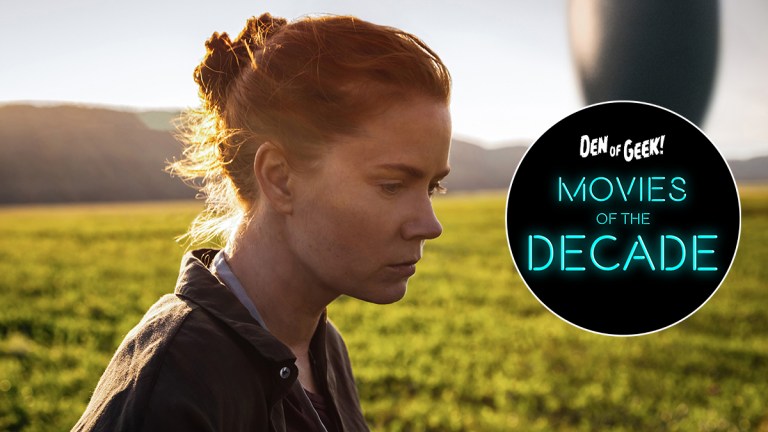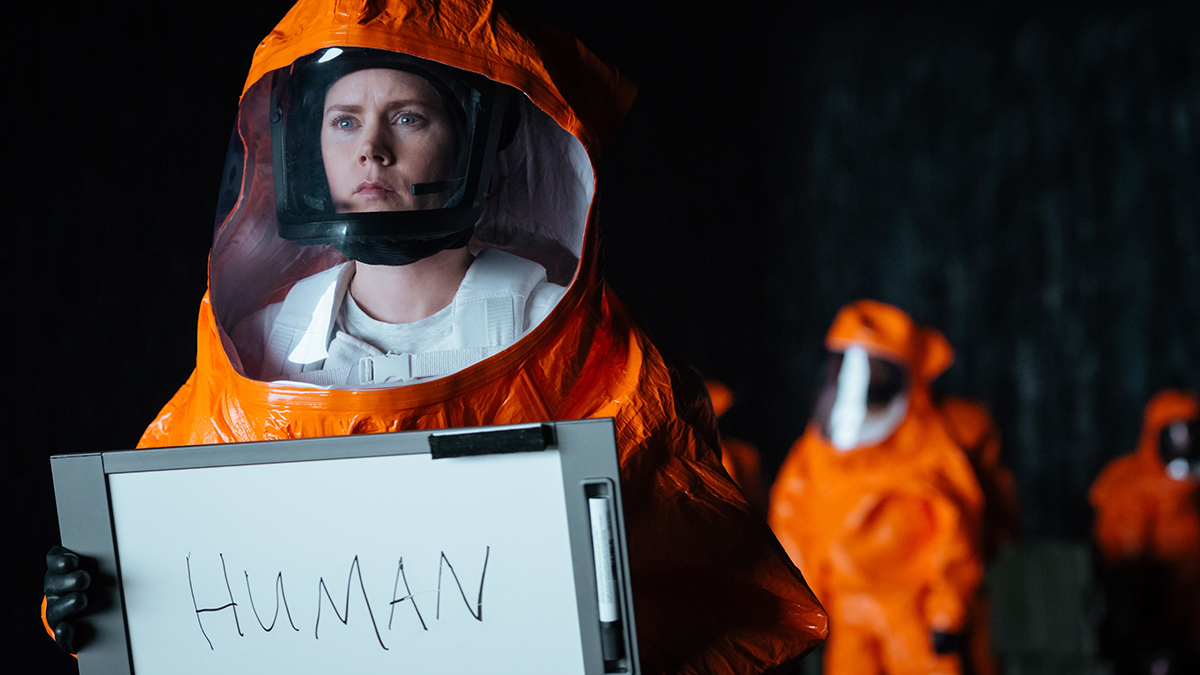Movies of the decade: Arrival and the rise in popularity of smart sci-fi
Denis Villeneuve's thoughtful sci-fi was voted one of the best films of the last 10 years, in a decade that found the genre in rude health

One of the most satisfying things about sci-fi in the 2010s has been the variety of different types of really great movies we’ve been treated to. Our reader-voted top 20 films of the decade included 13 sci-fi films, of which 8 were comic-book movies that display an extraordinary range even within that category (including a 2D animated science fantasy, a grimdark future-set tragedy, an irreverent comedy, a space opera, a thriller and three epic team-ups).
Top of the list was an intelligent, mind-bending sci-fi film with epic dramatic sequences (Inception), and others included a near-silent road movie, more space opera, and two really smart examples of hard sci-fi – Arrival and The Martian, at numbers 10 and 18 respectively (with Blade Runner 2049 just missing a spot as the highest-rated film not on the list – it’s been a good decade for director Denis Villeneuve!).
Arrival is part of an increasing trend for thoughtful hard sci-fi that includes the great (Source Code, Gravity), the thoughtfully epic (Interstellar), the horror-tinged (Ex Machina, Under The Skin) and the somewhat dubious (Passengers). Some of these blend the big ideas of classic science fiction with action or horror sequences, producing the kind of trailer-ready money shots that help to get these things made. Even The Martian plays up the action aspects of its conclusion. But Arrival creates a genuinely cinematic experience without falling back on any of those stand-bys, instead creating drama through dialogue, tense plotting and, OK, one tragic death.
Arrival is a movie about big ideas, which takes real-world research and spins it into something bigger. Neurologists have demonstrated that in the real world, learning multiple languages changes the structure of the brain, while psychologists have shown that speaking multiple languages changes the way a person views the world.
This is partly because different languages have names for concepts that other languages don’t always name or recognise – like ‘schadenfreude’ (German, meaning taking pleasure in someone else’s misfortune) or ‘saudade’ (a Portugese word meaning a sense of longing for something absent). Having a word for something makes people more likely to notice or feel it, and changes how they see themselves and the world around them.

Arrival, based on Ted Chiang’s short story ‘Story Of Your Life’, takes these ideas and expands them into a classic science fiction tale, blending ideas about language and communication with a good old-fashioned stable time loop. The idea that not only do the aliens perceive time in a non-linear way but that learning their language could allow a human the same ability is an extension of existing theories that raises age-old questions about fate and free will. Louise’s choice is heartbreaking, and understandable, and gut-wrenching – and Ian’s eventual reaction equally tragically human.
The depth of the movie’s meditation on time as a circle goes beyond just the frequent use of circles in the set design. Amy Adams’ depressed, detached performance throughout – particularly at the movie’s opening – is partly a red herring to convince the audience that the flash-forwards to Hannah’s death are actually flashbacks. However, it’s also part of the film’s central idea about the non-linear nature of time and experience from Louise’s point of view – Louise is already melancholy and detached at the beginning of the film because she is already experiencing those negative emotions associated with Hannah’s death, even though she isn’t consciously aware of it yet.
Arrival is also a movie about first contact, and since it’s all about language, it deals with the sorts of issues you might expect to encounter in a real first contact in depth. Hostile invasion stories don’t always need to focus on language so much since the aliens’ habit of killing everybody tends to make their intentions clear, but peaceful first contacts are more complicated. The idea that mathematics might help two vastly different cultures find a common language is a fairly popular one, and the way Arrival blends this idea with the use of imagery is very effective.
Arrival does include some more typical, movie-friendly scenes. Earth’s first contact with aliens is as awe-inspiring as many other versions of the same story, their huge shell-like ships offering a visual as striking as Close Encounters Of The Third Kind’s bright lights or Independence Day’s looming UFOs. The appearance of the aliens themselves shows off some beautiful and convincingly alien design on their bodies, looking almost horrific at first before the audience get used to them and start to see them as friendly. The stunning cinematography and delicate direction were both nominated for Oscars (though the film won only one Oscar, for sound editing).
It’s also key to Arrival’s success that it isn’t just an intellectual puzzle with no heart. The emotional core of the film is downbeat and sad, but no less powerful for that. Not just Louise’s relationship with her daughter Hannah, but the titular arrival of the aliens “Abbot” and “Costello” are full of love, to an extent the audience only really understand at the film’s conclusion (which reveals that Abbot always knew what would happen if he came to Earth, and came anyway).
The joy of cinema is that it’s possible to go for so many different experiences – to laugh, to cry, to be educated, to be uplifted, to be swept away by an epic adventure, or to be given something to think about that will stay with you long after you leave the multiplex. Arrival is one of the best recent examples of that. It’s a deeply thoughtful film, that combines stunning film-making with human emotion and big ideas in the best tradition of hard science fiction – and that’s why our readers voted it the 10th best film of the decade.
